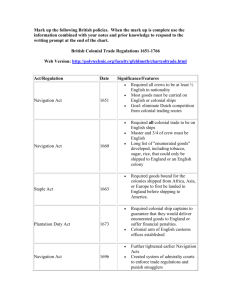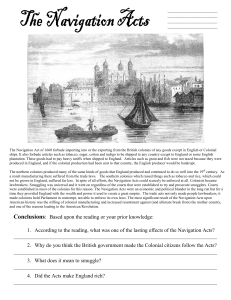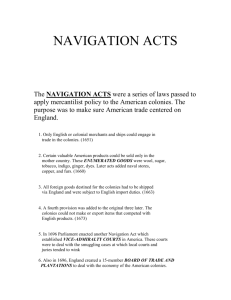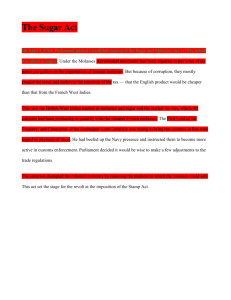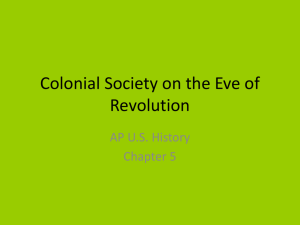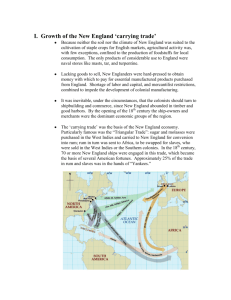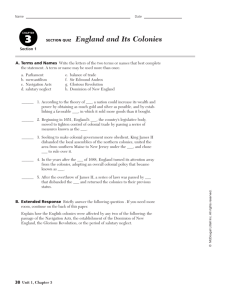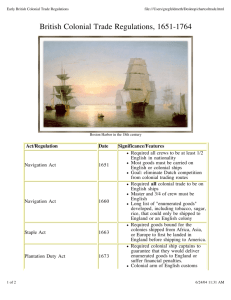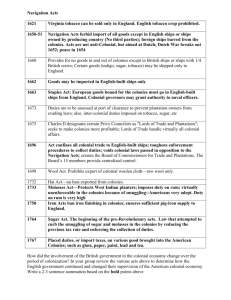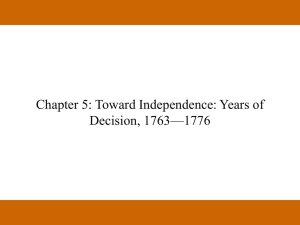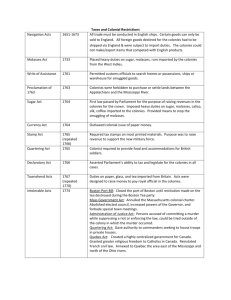British Imperial Trade Regulations 1651-1733 Overview
advertisement
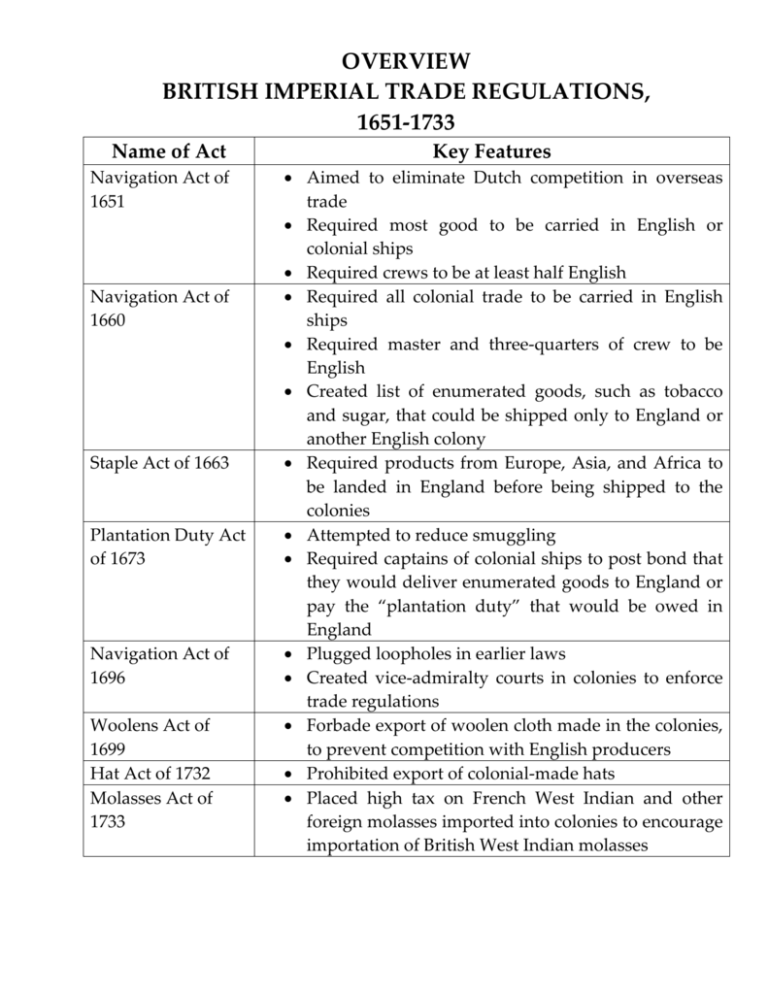
OVERVIEW BRITISH IMPERIAL TRADE REGULATIONS, 1651-1733 Name of Act Navigation Act of 1651 Navigation Act of 1660 Staple Act of 1663 Plantation Duty Act of 1673 Navigation Act of 1696 Woolens Act of 1699 Hat Act of 1732 Molasses Act of 1733 Key Features • Aimed to eliminate Dutch competition in overseas trade • Required most good to be carried in English or colonial ships • Required crews to be at least half English • Required all colonial trade to be carried in English ships • Required master and three-quarters of crew to be English • Created list of enumerated goods, such as tobacco and sugar, that could be shipped only to England or another English colony • Required products from Europe, Asia, and Africa to be landed in England before being shipped to the colonies • Attempted to reduce smuggling • Required captains of colonial ships to post bond that they would deliver enumerated goods to England or pay the “plantation duty” that would be owed in England • Plugged loopholes in earlier laws • Created vice-admiralty courts in colonies to enforce trade regulations • Forbade export of woolen cloth made in the colonies, to prevent competition with English producers • Prohibited export of colonial-made hats • Placed high tax on French West Indian and other foreign molasses imported into colonies to encourage importation of British West Indian molasses
